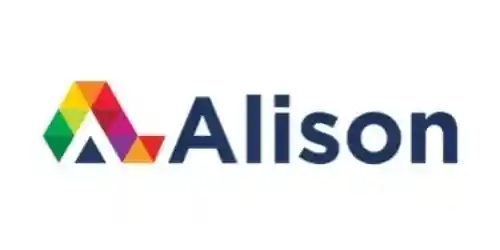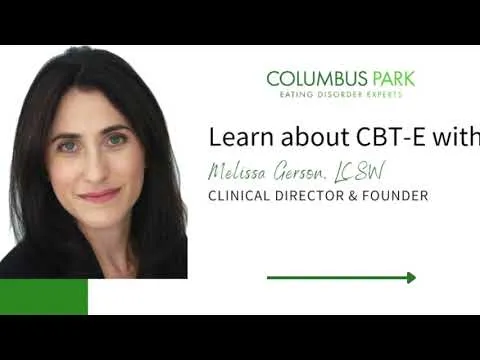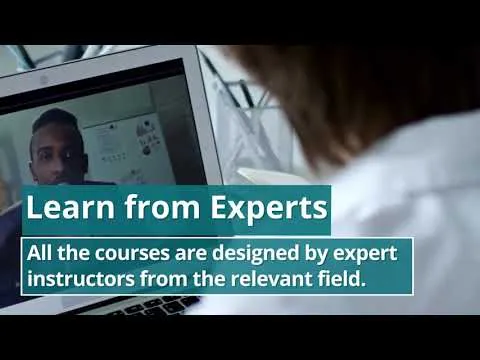
Principles of Cognitive Behavioral Therapy 
Discover the transformative power of Cognitive Behavioral Therapy (CBT) with this comprehensive course. Learn how to change your thinking and responses to effectively manage difficulties. Explore the benefits of CBT for children and young people, including ADHD, anxiety, mood disorders, and autism spectrum disorder. Gain practical skills in interventions, cognitive restructuring, case conceptualization, and treatment planning. Master problem-solving techniques and diverse strategies to help your patients. Perfect for therapists and parents looking to enhance their understanding of CBT principles. Expand your knowledge and make a positive impact in your working field. Enroll now and unlock the potential of CBT. ▼
ADVERTISEMENT
Course Feature
![]() Cost:
Cost:
Free
![]() Provider:
Provider:
Alison
![]() Certificate:
Certificate:
No Information
![]() Language:
Language:
English
Course Overview
❗The content presented here is sourced directly from Alison platform. For comprehensive course details, including enrollment information, simply click on the 'Go to class' link on our website.
Updated in [September 26th, 2023]
What does this course tell?
(Please note that the following overview content is from the original platform)
Cognitive behavioral therapy CBT) is an oral form of treatment that aims to change how you think and respond to help you manage your difficulties. During this course, you will study CBT principles and explore accurate information on concepts and terminology. We first define cognitive behavioral therapy for children and young people, delving into ADHD, anxiety, mood disorders and autism spectrum disorder. What are the benefits of using this therapy? Next, we will discuss the effectiveness of CBT in children between the age of three and seven and anxious children and will assess the various ways of applying the treatment.
This course will teach you about CBT, its history and areas of CBT application. You will be able to learn how to use 'tools' like interventions and cognitive restructuring correctly and create case conceptualization and treatment planning. Furthermore, you will learn the distinct orientation varieties for 'Brief CBT’. The course will explain how to properly manage patient expectations, starting with the first initial sessions. You will explore problem-solving techniques and diverse strategies and help explain automatic thoughts to your patient. Finally, we will end with some role-playing scenarios (for example: ‘psychologist versus client’ interviewing).
This course will equip you with a better understanding of CBT principles, giving you clear and precise methods to apply in your working field. Have you considered expanding your knowledge in studying CBT principles? This course is perfect for those in the therapy working field or parents who want to increase their awareness of cognitive behavioral therapy.
We considered the value of this course from many aspects, and finally summarized it for you from two aspects: skills and knowledge, and the people who benefit from it:
(Please note that our content is optimized through artificial intelligence tools and carefully reviewed by our editorial staff.)
What skills and knowledge will you acquire during this course?During this course, learners will acquire the following skills and knowledge:
1. Understanding of CBT principles: Learners will gain a comprehensive understanding of the principles of Cognitive Behavioral Therapy (CBT) and how it aims to change thinking patterns and responses to manage difficulties.
2. Accurate information on concepts and terminology: Learners will study and explore accurate information on concepts and terminology related to CBT, including ADHD, anxiety, mood disorders, and autism spectrum disorder.
3. Benefits of CBT: Learners will learn about the benefits of using CBT as a therapy, particularly for children and young people.
4. Effectiveness of CBT in specific populations: Learners will assess the effectiveness of CBT in children between the ages of three and seven and anxious children. They will also explore various ways of applying CBT treatment.
5. Use of CBT tools: Learners will learn how to use interventions and cognitive restructuring techniques correctly. They will also learn how to create case conceptualization and treatment planning.
6. Brief CBT orientation: Learners will be introduced to distinct orientation varieties for Brief CBT and learn how to properly manage patient expectations from the initial sessions.
7. Problem-solving techniques and diverse strategies: Learners will explore problem-solving techniques and diverse strategies to help clients overcome their difficulties.
8. Explaining automatic thoughts: Learners will learn how to explain automatic thoughts to their clients and help them understand the impact of their thoughts on their emotions and behaviors.
9. Role-playing scenarios: The course will include role-playing scenarios, such as 'psychologist versus client' interviewing, to help learners practice and apply their knowledge in real-life situations.
Who will benefit from this course?
This course will benefit individuals in the therapy working field, such as psychologists, counselors, and therapists. It will provide them with a better understanding of CBT principles and techniques, allowing them to effectively apply these methods in their practice. They will learn how to use interventions and cognitive restructuring correctly, create case conceptualization and treatment planning, and manage patient expectations. The course will also teach problem-solving techniques and diverse strategies, as well as how to explain automatic thoughts to patients. Additionally, parents who want to increase their awareness of cognitive behavioral therapy can also benefit from this course, as it will provide them with valuable knowledge and skills to help their children who may be experiencing difficulties such as ADHD, anxiety, mood disorders, or autism spectrum disorder.
Course Syllabus
Introduction to CBT for Children
First, this module starts by explaining the ideas and vocabulary. You will view all the various applications of cognitive-behavioral therapy (CBT). Next, the module provides information about CBT therapy for children. Finally, the module will provide you with information on the benefits of using cognitive emotional therapy.Cognitive Behavioral Therapy (CBT)
This module provides you with an introduction to CBT, Epictetus, areas of CBT application. Using a step-by-step process you will see how to understand problem-solving strategies, PMR, deep breathing, İmagery. Finally, you will review role plays: psychologist and client interviews.Course assessment
Course Provider

Provider Alison's Stats at AZClass
Discussion and Reviews
0.0 (Based on 0 reviews)
Explore Similar Online Courses

Open Source Software Development: Linux for Developers

Root Cause Analysis: Cause Effect and 5 Whys Diagram

Python for Informatics: Exploring Information

Social Network Analysis

Introduction to Systematic Review and Meta-Analysis

The Analytics Edge

DCO042 - Python For Informatics

Causal Diagrams: Draw Your Assumptions Before Your Conclusions

Whole genome sequencing of bacterial genomes - tools and applications

Learn about CBT-E

Enhanced Cognitive Behavioral Therapy (CBT-E) for Anorexia


Start your review of Principles of Cognitive Behavioral Therapy